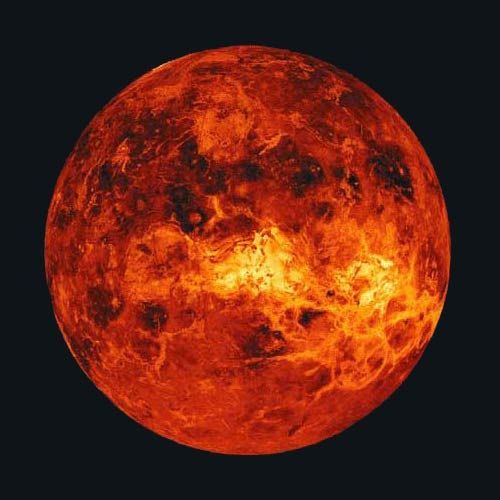Latest discovery about Life on Venus has sent ripples of excitement across the scientific community.
As a species, we all are curious to find the life form on our sister planets. Our leading scientists have been conducting various researches to further this quest. Of the many planets that have caught our eye, Mars and Venus have prominent spaces. Mars has been the cynosure of many eyes including the media which has given some mega hits. Our fascination with Mars has been ever increasing. However, there are emerging news of a new discovery that is going to change the scenario. Scientists have detected a chemical called Phosphine on Venus, the hottest planet. This may indicate the positive signs of extraterrestrial life on the planet.
Sign of extraterrestrial life form on Venus:
An international team of astrophysicists has recently detected a molecule called phosphine, in the atmosphere of Venus. This molecule indicates the presence of microbial life. The team of astronomers published their findings in the journal Nature Astronomy. This discovery puts Venus in the limelight for the search of biological traces of life.
Does extra terrestrial life exist on Venus?
The findings are not explicit observations of life on Venus, but rather are signs that point to the existence of bacterial life. Phosphine is made up of three hydrogen atoms bound to phosphor. It is considered to be a strong bio-signature of life on rocky, terrestrial and Earth-sized planets.
The conditions on the surface of Venus are so hostile and acidic, that they do not support life. However, high up above the toxic clouds, the conditions get habitable and temperate. The study indicates that, it is in this region where the gas is thought to be found. Since phosphine is a base, it would react quickly with the acidic clouds and form a new molecule. This process would destroy almost all of the phosphene. However, the abundance of phosphine found in the atmosphere suggests that a source is constantly and actively forming it.
A Word of Caution
The authors of the paper have gave out a word of caution. They state that their findings are “not robust evidence for life, but are only anomalous and unexplained chemistry.”
More on Phosphine
Phosphine is generated on Earth by various industrial processes and through anaerobic organisms. Such is not the case for Venus. As Emily Maunder, an astrophysicist from the Royal Observatory Greenwich observes, “Either phosphine is generated by some chemical or geological process no one knows about- or there could be a biological reason.”
“It’s a step on the way to potentially the discovery of life of some kind in the upper atmosphere of Venus. But we have many, many more steps to go before we can say there’s life on Venus.” said David Clements, a scientist at Imperial College London who is also an author on the paper.
The Discovery
As it has always been with Science, this discovery too came as an accident.“Here on Earth, oxygen is a really impressive sign of life,” said Clara Sousa-Silva, a research scientist in MIT’s Department of Earth. She further stated, “But other things besides life make oxygen too.”
Other scientists have stated the study as “a genuinely exciting result”, because the findings point to a very rare process taking place on Venus. Further investigations shall take place based upon results. These shall include observing the amount of phosphine over time and noting the changes in phosphine levels throughout the year.
Even if there is life on Venus, it will most likely be single celled microorganisms. These microorganisms float in the liquid droplets of clouds in the atmosphere of Venus. There are plans to send a probe to Venus in order to directly examine the phosphine levels and take samples.
Conclusion for :
In conclusion, Phosphine found on Venus indicates towards a potential micro-organic life form. However, scientists caution us that the phosphine emerged can also merely be due to an unknown geological process taking place on the surface of Venus. In my opinion, if life exists on Venus it would be of a primitive form. A probe to Venus to analyse the phosphine samples will help to uncover the truth.
Reference:
https://www.nature.com/articles/d41586-020-02785-5
Yashasvi Moon
Seventeen years young Yashasvi Moon is an aspiring physicist. She writes easy to understand articles about complex theories in Physics. Her interests include playing the Piano. She is also an active supporter of combating climate change. She has successfully mastered the French A1 language level.She believes, "We are still pioneers, and our greatest achievements cannot be behind us because our destiny lies above us.”


